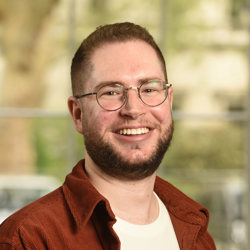- Entrepreneurs with engineering solutions in sub-Saharan Africa invited to apply for the Africa Prize for Engineering Innovation
- The 2024 prize will mark a decade of support for innovators enhancing economic, environmental and social development in Africa
The Royal Academy of Engineering has opened applications for the 2024 Africa Prize for Engineering Innovation as the programme approaches its 10th anniversary. The Africa Prize supports ambitious entrepreneurs and innovators developing local and scalable solutions to everyday challenges on the continent.
The Africa Prize will welcome its tenth cohort in November 2023. Since 2014, the programme has supported more than 130 entrepreneurs across 20 African countries with a rigorous business training programme and lifelong support through the Africa Prize alumni network. More than 70% of the alumni’s engineering and technology businesses now generate revenue. Between them the Africa Prize alumni have raised more than USD 14 million in grants and equity funding, and created more than 3,600 jobs, almost half of them for women.
The Africa Prize is now looking for the next 16 promising innovators with engineering technologies to improve lives, launching applications today at the 10th Sankalp Africa Summit in Nairobi, Kenya – an event that showcases the entrepreneurial ecosystem working towards sustainable development in Africa.
The aim of the Africa Prize is to support the crucial role that engineers play in addressing societal challenges including access to power, food and water security, adapting to climate change, and improving telecommunications, education, financial services, healthcare and other public infrastructure. With applications from 37 African nations to date, and shortlisted candidates from 20 nations, the Africa Prize continues to nurture the wealth of diverse engineering talent across sub-Saharan Africa.
The winner of the Africa Prize receives £25,000 and three runners-up are each awarded £10,000. Up to 16 shortlisted applicants receive a unique package of support over eight months to help them accelerate their businesses, including comprehensive and tailored business training, sector specific engineering mentoring, communications support, pitching opportunities and access to the Academy’s network of high profile, experienced engineers and business experts in the UK and across Africa.
The Academy’s judges, mentors and expert reviewers have provided over 2,500 hours of support over the last ten years, valued at almost USD 1.5 million, and the alumni continue to contribute directly to the UN Sustainable Development Goals as their enterprises scale.
“The Africa Prize boosted my success as an African entrepreneur by helping me grow, providing training and international mentoring support to my water solution for Tanzania,” said inaugural winner Professor Askwar Hilonga, who created the NanoFilter system. “The Prize changed my life, and the future of thousands of Tanzanians who now have access to safe drinking water.”
“African entrepreneurial ecosystems have historically been centred around stronger economies, making it harder for startups from smaller countries to achieve success,” said Meredith Ettridge, Associate Director, International, at the Royal Academy of Engineering. “The Africa Prize is providing opportunities and access to expert networks in countries which have previously been overlooked.”
The Africa Prize today counts Ivorian, Togolese, Sierra Leonean and Gambian innovators among its alumni. While the programme provides support in English, it has steadily seen more participation from French-speaking African regions over its ten-year history, with two Francophone African winners to date.
“Supporting African engineering innovators means supporting disruptive but appropriate technologies. Africa Prize alumni have typically created something that is based on engineering and suitable to local users. Appropriate technologies can only come from innovators who understand their own environment and communities, local perspective, and that’s what we are supporting,” said Ettridge.
African entrepreneurs from all engineering disciplines, and with an innovation that can provide scalable solutions to local challenges, are invited to enter the tenth round of the Africa Prize. Applications are now open to individuals or small teams living and working in sub-Saharan Africa. Submitted innovations should have a social, economic or environmental benefit, and should be at an early stage of development, with the potential for upscaling and commercialisation. The Prize is open to hardware and software innovations, as well as innovative processes and systems.
The deadline for applications is 25 July 2023 (4pm BST). Visit the ‘How to Apply’ guide on the Africa Prize website and submit applications through the online grants system.
Notes for editors
- The Africa Prize for Engineering Innovation, founded by the Royal Academy of Engineering in 2014, is Africa’s biggest prize dedicated to developing African innovators, and assisting them to maximise their impact. It awards crucial commercialisation support to ambitious African innovators developing scalable engineering solutions to address local challenges, demonstrating the importance of engineering as an enabler of improved quality of life and economic development.
An eight-month period of tailored training and mentoring culminates in a showcase event where a winner is selected to receive £25,000, along with three runners-up who are each awarded £10,000. The 12 remaining shortlisted candidates also compete for the public’s vote for the One-to-Watch award of £5,000.
Judges, mentors and expert reviewers for the Africa Prize for Engineering Innovation have provided over 2,500 hours of support to entrepreneurs since the prize was established – this equates to a value at almost USD 1.5 million in support.
The Africa Prize has been generously supported by the UK Government, charitable trusts and foundations, individual donors and corporate partners over the last nine years.
- The Royal Academy of Engineering is harnessing the power of engineering to build a sustainable society and an inclusive economy that works for everyone.
In collaboration with our Fellows and partners, we’re growing talent and developing skills for the future, driving innovation and building global partnerships, and influencing policy and engaging the public.
Together we’re working to tackle the greatest challenges of our age.

